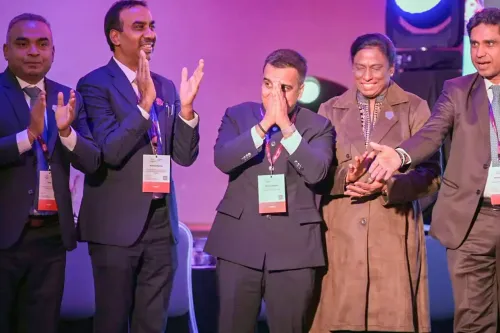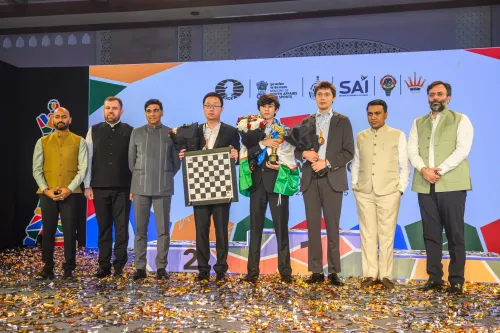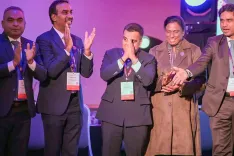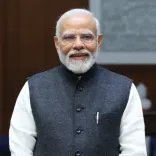Is the Online Gaming Bill 2025 a Step Forward for Esports?
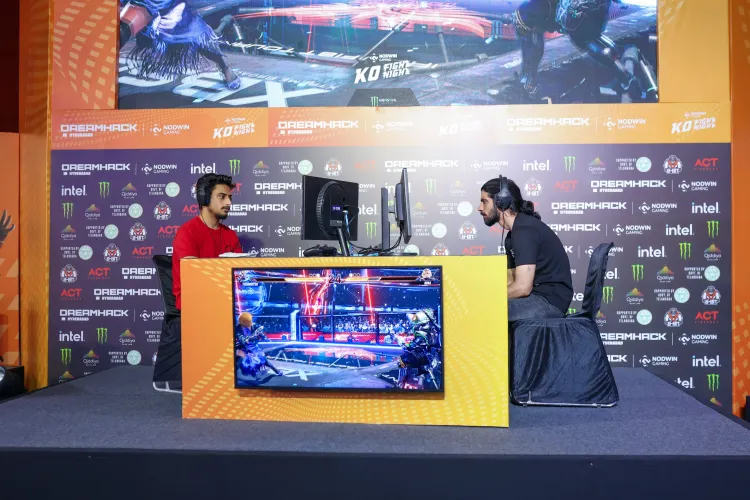
Synopsis
Key Takeaways
- The Online Gaming Bill 2025 aims to regulate esports and educational games.
- It prohibits online money games, ensuring a clear distinction.
- The Bill promotes skill-based competitions and recognizes their legitimacy.
- The government plans to support esports through guidelines and training programs.
- India is on a path to becoming a global esports leader.
New Delhi, Aug 20 (NationPress) Union Minister Ashwini Vaishnaw has presented the Promotion and Regulation of Online Gaming Bill, 2025, to the Lok Sabha this Wednesday. The initiative is designed to boost and regulate esports, educational, and social games, while strictly banning the offering, operation, facilitation, advertisement, promotion, and participation in online money games.
Within this Bill, “e-sport” is defined as an online game that forms part of multi-sport events, involving organized competitive contests between individuals or teams. These competitions are held in multiplayer formats under established rules and acknowledged under the National Sports Governance Act, 2025.
It specifically mentions that outcomes in esports are determined solely by players’ skills, which encompass physical dexterity, mental agility, and strategic thinking.
Additionally, the Bill specifies that the Central Government will take necessary actions to promote esports, which includes establishing guidelines for events, setting up training and research institutions, launching incentive and awareness programs, collaborating with State Governments and sports federations, and executing various measures to nurture the sector’s development.
It also clarifies that an “online money game” is any online game that involves skill, chance, or both, where users pay fees, deposit money, or stake assets with the expectation of winning monetary or other rewards. Importantly, this definition excludes esports.
By distinctly separating esports from online money games and gambling, this Bill offers the legal acknowledgment and legitimacy that athletes, creators, and gaming organizations have long sought.
With governmental backing, players and creators can now engage in esports professionally with assuredness, while the ecosystem reaps benefits from structured support, training programs, and guidelines that foster sustainable growth and innovation.
On this development, Akshat Rathee, co-founder and managing director of NODWIN Gaming, stated, “The government’s intent to recognize and promote esports, as highlighted in the recent bill, is an encouraging step towards building a structured and globally competitive ecosystem. However, for this vision to truly materialize, it is critical that the terminology used in the bill, especially the distinctions among esports, online gaming, online social gaming, and online money gaming, be clearly defined and uniformly understood.
The absence of precise definitions has often resulted in ambiguity and conflation around the term “esports.” Such overlaps can create confusion not just for regulators, but also for players, teams, investors, and organizers striving to develop this industry.
India has also been achieving significant milestones in international esports tournaments. S8UL, the only Indian organization presently competing in 13 different esports titles, has become the nation’s first and only team selected from 40 of the world’s best esports teams for the Club Partner Program of the USD 70 million prize pool Esports World Cup (EWC).
“This bill marks a historic turning point for Indian esports. By drawing a clear line between skill-based competitive gaming and betting, it safeguards the integrity of our ecosystem while opening doors for structured growth. Esports is a sport built on skill, discipline, and years of effort. With government recognition and the right infrastructure, India is now set to emerge as a global powerhouse in esports and gaming culture,” expressed Animesh Agarwal aka 8Bit Thug, co-founder and CEO of S8UL Esports.
Esports is already gaining mainstream traction in India, highlighted by its debut in the Khelo India Youth Games 2025 earlier this year. States such as Bihar, Maharashtra, Tamil Nadu, and Nagaland have actively promoted grassroots esports through championships and structured programs, signaling an increasing acknowledgment of competitive gaming as a legitimate sport.

